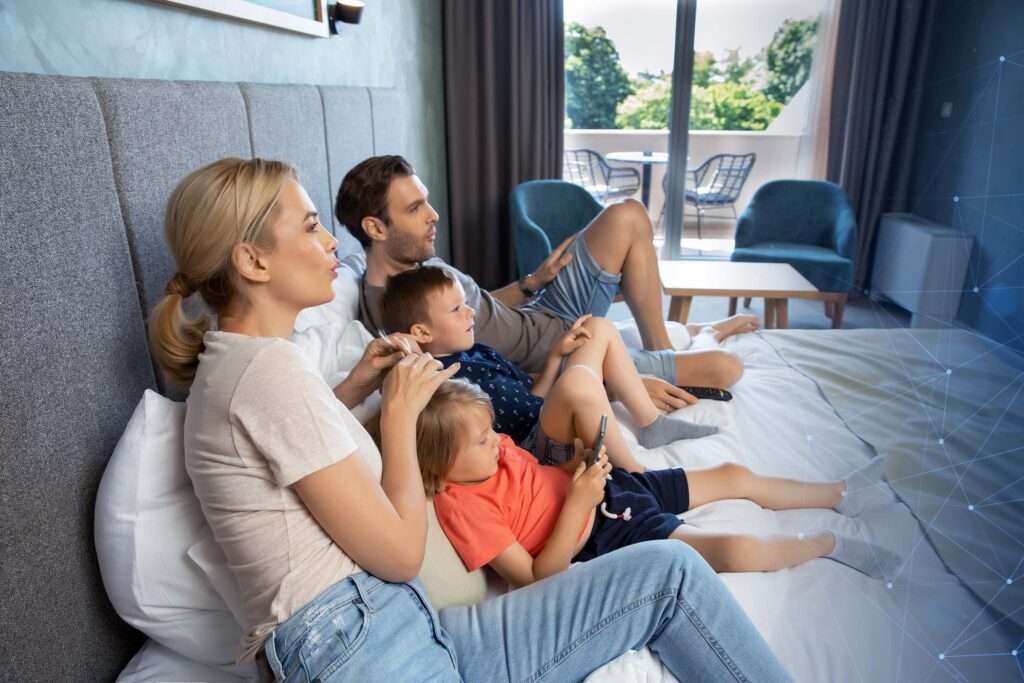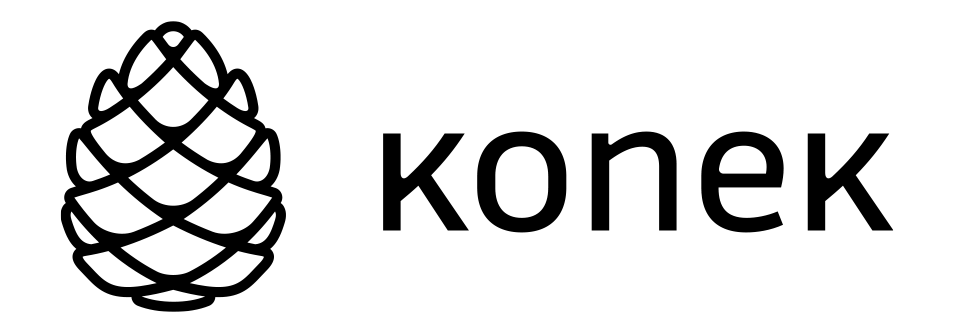The hospitality industry is so competitive that keeping up with the latest trends in hotel technology is imperative. Technology helps businesses improve processes, reduce costs, reduce employee workload, increase revenue potential, and most importantly, improve customer experience.
Technological means make it possible to optimize efficiency and better meet the growing expectations of customers.

Smart TV
Hotel smart TVs offer more than traditional channels, they are ”smart hubs” for the hotelier’s customer experience, branding and communication. From streaming content to ordering room service, hotel television has evolved to meet guest expectations. Customers are mostly very well equipped at home in terms of technology, so they have expectations at this level when staying in a hotel.
Did you know that Konek technology makes televisions smart while also offering Chromecast/AirPlay, applications, games and even the distribution of personalized channels for hoteliers? Provide unique experiences to your visitors.
Internet of Things (IoT)
The Internet of Things (IoT) has the potential to transform the hospitality industry by dramatically changing the way hotels collect data, communicate with users, and automate processes. IoT refers to the interconnection of physical objects using sensors and other devices capable of collecting and sending information about real-time activity in the environment. IoT solutions are helping transform businesses in the hospitality industry to become smarter and perform better at what they do.
For example, the Internet of Things allows customers to easily adjust lights or call reception via TV or cell phone. Another utility is that visitors can check into a hotel and unlock their room from their cell phone.
Data and artificial intelligence
Data acquisition is growing rapidly in almost every industry. In the hospitality industry, data can be leveraged to provide a more personalized experience for consumers.
In the hospitality industry, data can identify trends that companies can use for revenue management purposes. Data analysis allows managers to have a better understanding of current performance and influential external factors. Stand out from the competition by integrating innovative data and artificial intelligence practices.
For example, an artificial intelligence algorithm that analyzes consumer preferences in order to propose product associations in accordance with their choices. At the restaurant, when a customer is about to order a cheese platter, the algorithm suggests that he associate his choice with a glass of red wine.
Cybersecurity
According to a recent market report, hospitality ranked third among industries compromised by cybersecurity breaches in 2019, and the sector suffered 13% of the total number of incidents [1] . Today, hotels and restaurants rely more on data than ever before and make more use of IT systems. In order to protect the data in the Hotel Property Management System (PMS), there are several best practices such as:
- Implement an ongoing cybersecurity training program to maintain well-trained employees.
- Always encrypt all information such as credit cards, personal information, etc.
- Protect against common threats with cybersecurity measures such as firewalls, network monitoring, anti-malware and traffic filtering.
- Replicate the behavior of real hackers and test your organization’s cybersecurity defenses.
- Know where your data is and apply the principle of least privilege to limit access to sensitive information.
- Learn about the different forms of insurance to obtain financial protection when a hotel is exposed to this type of attack.
- Prepare emergency response plans and procedures for hacking scenarios.
Chatbots
Chatbots have been a technology solution that has been increasingly used in the hospitality industry for the past few years, but this option continues to grow in importance. Moreover, customers want a quick response, at any time of the day. With labor issues, Chatbots are a very useful tool to answer customer questions.
Service automation and contactless
Automation systems give hoteliers full control over hotel operations while automating and optimizing processes to reduce costs and increase guest satisfaction. Save time by automating steps in the customer journey. For example, automating the following tasks can optimize your time and make the customer experience more pleasant: reservations, room assignments, communications, payments, departures/arrivals, etc.
Hotel customers increasingly prefer self-service rather than always calling employees for something. In addition, the contactless aspect has become increasingly important since the pandemic. However, the set of best practices that minimizes the risk of virus transmission and decreases the number of face-to-face interactions must offer the same level of service to customers. Software and applications will play a key role for hotels looking to offer contactless hotel and hospitality services to their customers.
Bandwidth and fast Wi-Fi
According to a study by Coach Omnium, 67% of hotel guests complain of slow and stubborn Wi-Fi during peak hours. Customers are increasingly connected. Internet access must be simple and fast. A slow Internet and Wi-Fi network is a real irritant for customers. Several techniques exist to promote a fast Internet connection such as implemented at redundancy points at strategic locations in the hotel. Internet browsing must be inseparable from security, many opt for “private” portals.
_
Do not hesitate to contact us for advice or for different questions, the Konek team will be happy to discuss with you.
